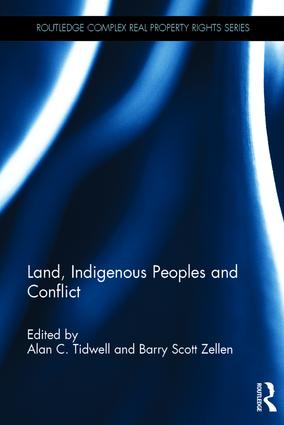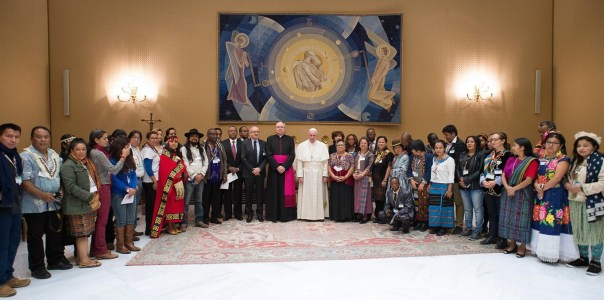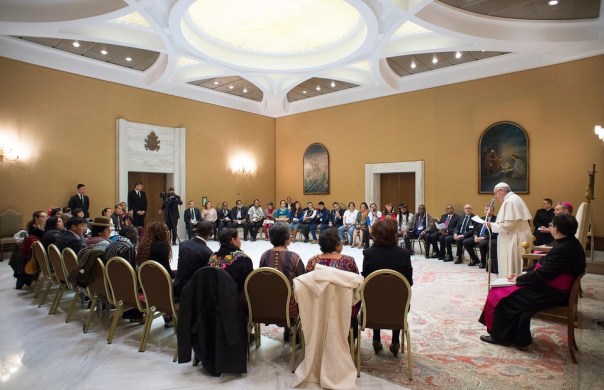Spike Boydell is General Editor of the Routledge Complex Real Property Rights book series.
The first book launced in the series is Land, Indigenous People and Conflict edited by Alan Tidwell and Barry Zellen. 
As Spike explains in his foreword for the volume:
Real Property Rights are central to the economy and provide a legal framework for how society (be it developed or customary) relates to land and buildings. Property rights are both institutional arrangements and social relations. We need to better understand property rights to ensure sustainable societies, careful use of limited resources and sound ecological stewardship of our land and water.
Land conflict is all around us – from corporate and political corruption over land dealings in the developed world, to land grab in developing countries, to compromised indigenous property rights, to resource exploitation. At a time where global food security, water security and shelter are paramount, an understanding of property rights is key to sustainability.
Contemporary property rights theory is dynamic and this series strives to engage thinkers who are prepared to step beyond their disciplinary limitations. ‘Property Rights’ is a broad term that is fundamentally about social relations. Real property rights, obligations and restrictions can be found in and change across the full range of human societies, both in time and space. Property rights research has emerged from a broad range of disciplines including (but not limited to) archaeology, anthropology, ethics, sociology, psychology, law, geography, history, philosophy, economics, planning, and business studies.
Much writing on property rights has, historically, been mono-disciplinary. A disciplinary approach has caused a plurality of understanding about property rights that extends significantly beyond the dominant legal / economic divide. Disciplinary thinking has not minimised or helped to manage / limit land conflict. What makes this series special is that it facilitates a transdisciplinary approach to understanding property rights and will specifically encourage heterodox thinking.
‘Land, Indigenous Peoples and Conflict’ is the appropriate title with which to launch the Routledge Complex Real Property Rights series. As the editors of this volume, Alan Tidwell and Barry Zellen have brought together an eclectic collection of authors who mutually share a depth of insight into contemporary conflicts over indigenous land.
‘Land, Indigenous Peoples and Conflict’ has several distinguishing features. Primarily, it is transdisciplinary in nature. Any discussion of the link between land, indigenous peoples, and conflict necessarily requires drawing on ideas, concepts and principles from such disparate disciplines as cultural anthropology, political science, sociology, economics, just to name a few. Taking a transdisciplinary approach helps the authors connect theory to observed reality, which in turn gives traction to inform potential policy outcomes.
A second distinguishing feature of ‘Land, Indigenous Peoples and Conflict’ concerns the geographic breadth of coverage of the edited volume, spanning from the Arctic to the tropics and including mainland Asia as well as the Austro-Pacific islands; both North and South America; northern Eurasia (Siberia), as well as Africa. Touching upon a geographically broad range enables readers to become more generally acquainted with the diverse property rights challenges indigenous peoples face. A third distinguishing feature of ‘Land, Indigenous Peoples and Conflict’ is its emphasis on both land rights as well as identifying the many ways in which conflicts are managed or resolved. Uniquely, ‘Land, Indigenous Peoples and Conflict’ provides a breadth and depth to the question of indigenous land conflict not found in other texts.
For more information on this book, and others in the series, please click here.























